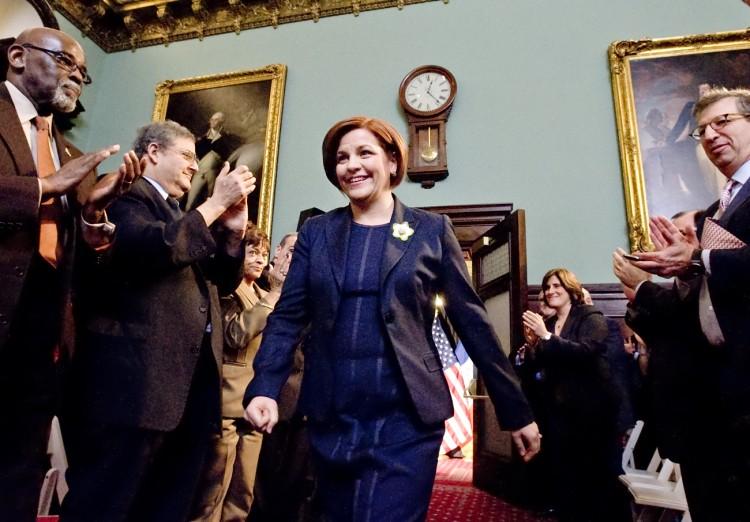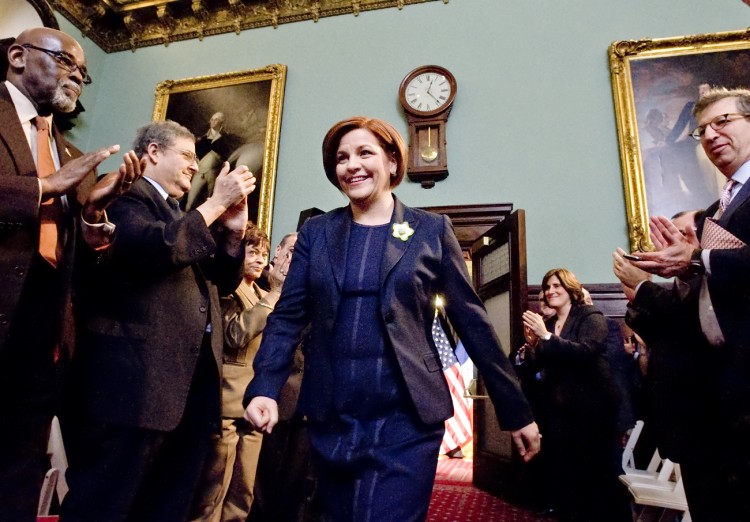NEW YORK—Outgoing City Council Speaker Christine Quinn outlined a range of new proposals in her last State of the City speech before her expected run for the mayor’s office.
Quinn’s record of delivering on proposals in her seven yearly speeches is close to 50 percent; out of 75 proposals in her State of the City speeches since 2007, 38 have manifested in some way.
The biggest project in this year’s speech is to create 40,000 new apartments that are affordable for the middle class over the next decade.
Mayor’s Ally
Most of the ideas Quinn takes credit for—including the new apartment proposal—are from Bloomberg and his administration, said Nicole Gelinas, senior fellow at Manhattan Institute, a free market think tank.
“She’s basically saying, if you like Bloomberg’s economic development strategy, you should elect me,” said Gelinas. “If anyone should get the credit for that, it should be Bloomberg.”
Quinn’s housing proposal is layered on top of Bloomberg’s larger plan to create or preserve 165,000 lower-income units, according to Quinn’s speech.
Councilmembers after the speech on Feb. 11 said the lack of affordable housing for the middle class—those making $66,400 to $199,200, according to the council’s Finance Division—is a crucial issue that needs to be addressed.
“I always get the complaint from my constituents that those folks who are working class, they seem like they have benefits; the folks who are wealthy obviously don’t need any benefits; it’s the folks in the middle who are getting squeezed,” said Councilman David Greenfield, representing south Brooklyn. Councilwoman Margaret Chin, of Manhattan’s Chinatown, said that her district is losing affordable housing while new luxury buildings are built.
Quinn said that to create the new units, the city would have to further streamline operations (cut costs), use the capital budget more efficiently, and borrow more money. With interest and mortgage rates at an all-time low, according to Quinn, “This is the right move at the right time.”
But Gelinas said that the plan would do nothing but increase the price of housing for everybody else.
“This is classic special interest governing—she has her council people, they all want to keep groups of special interests happy, and she does a very good job of that,” said Gelinas. “But it’s not much of an accomplishment. It doesn’t make the city any better.”
‘Turning Point’
Quinn helped extend term limits so that Bloomberg could serve a third term as mayor. At the same time, the extension enabled many council members to retain their jobs for a third term.
That was the big turning point, said Christina Greer, assistant professor of political science at Fordham University.







